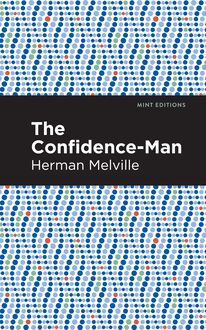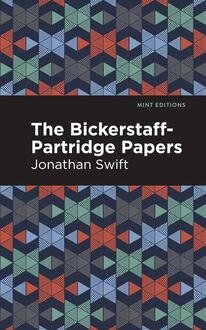-
 Univers
Univers
-
 Ebooks
Ebooks
-
 Livres audio
Livres audio
-
 Presse
Presse
-
 Podcasts
Podcasts
-
 BD
BD
-
 Documents
Documents
-
- Cours
- Révisions
- Ressources pédagogiques
- Sciences de l’éducation
- Manuels scolaires
- Langues
- Travaux de classe
- Annales de BEP
- Etudes supérieures
- Maternelle et primaire
- Fiches de lecture
- Orientation scolaire
- Méthodologie
- Corrigés de devoir
- Annales d’examens et concours
- Annales du bac
- Annales du brevet
- Rapports de stage
La lecture à portée de main
Vous pourrez modifier la taille du texte de cet ouvrage
Découvre YouScribe en t'inscrivant gratuitement
Je m'inscrisDécouvre YouScribe en t'inscrivant gratuitement
Je m'inscrisEn savoir plus
Vous pourrez modifier la taille du texte de cet ouvrage
En savoir plus

Description
Introducing some of P.G Wodehouse’s adored reoccurring characters and settings, Something New marks the beginning of the adventures at Blanding Castle. When Freddie and Aline get engaged, both are happy with the arrangement. Both from wealthy and prominent families, the engagement ensures them a higher social status. However, Freddie becomes paranoid that old letters he sent to an ex would endanger the engagement if unearthed. Desperate, Freddie hires a shady fixer to recover the letters. Meanwhile, J. Preston Peters, an American billionaire and Aline’s father, invites Freddie’s father, the Earl of Emsworth, to visit his home. There, the two men make small talk while Peters attempts to impress Emsworth with his vast beetle collection. But passive-aggressive conflict arises when Emsworth accidently slips Peters’ most prized beetle in his pocket, unintentionally stealing it. Though Peters suspects the other man, he is reluctant to confront him, in fears that it would threaten their children’s relationship. Instead, he advertises a reward for its return, inspiring a group of greedy thieves to find the beetle for themselves. With battling fathers, a group of thieves, a shady fixer, and a missing beetle, Aline and Freddie struggle to preserve their engagement.
Considered to be one of P.G Wodehouse’s best works, Something New is a comic caricature of aristocratic life. Originally published in Great Britain in 1915, the novel earned such impressive commercial success that it was reprinted for American audiences as well with minor changes to appeal to the demographic. With amusing and lovable characters, Something New delivers a light-hearted but exciting narrative that keeps audiences entertained even over one-hundred years after its first publication.
Now presented in a stylish, easy-to-read font and with a fun, eye-catching cover design, this edition of Something New by P.G Wodehouse is catered to accommodate modern readers.
Sujets
Informations
| Publié par | Mint Editions |
| Date de parution | 12 janvier 2021 |
| Nombre de lectures | 1 |
| EAN13 | 9781513275727 |
| Langue | English |
| Poids de l'ouvrage | 2 Mo |
Informations légales : prix de location à la page 0,0500€. Cette information est donnée uniquement à titre indicatif conformément à la législation en vigueur.
Extrait
Something New
P.G. Wodehouse
Something New was first published in 1915.
This edition published by Mint Editions 2021.
ISBN 9781513270722 | E-ISBN 9781513275727
Published by Mint Editions ®
minteditionbooks.com
Publishing Director: Jennifer Newens
Design & Production: Rachel Lopez Metzger
Typesetting: Westchester Publishing Services
C ONTENTS I II III IV V VI VII VIII IX X XI XII
I
T he sunshine of a fair Spring morning fell graciously on London town. Out in Piccadilly its heartening warmth seemed to infuse into traffic and pedestrians alike a novel jauntiness, so that bus drivers jested and even the lips of chauffeurs uncurled into not unkindly smiles. Policemen whistled at their posts—clerks, on their way to work; beggars approached the task of trying to persuade perfect strangers to bear the burden of their maintenance with that optimistic vim which makes all the difference. It was one of those happy mornings.
At nine o’clock precisely the door of Number Seven Arundell Street, Leicester Square, opened and a young man stepped out.
Of all the spots in London which may fairly be described as backwaters there is none that answers so completely to the description as Arundell Street, Leicester Square. Passing along the north sidewalk of the square, just where it joins Piccadilly, you hardly notice the bottleneck opening of the tiny cul-de-sac. Day and night the human flood roars past, ignoring it. Arundell Street is less than forty yards in length; and, though there are two hotels in it, they are not fashionable hotels. It is just a backwater.
In shape Arundell Street is exactly like one of those flat stone jars in which Italian wine of the cheaper sort is stored. The narrow neck that leads off Leicester Square opens abruptly into a small court. Hotels occupy two sides of this; the third is at present given up to rooming houses for the impecunious. These are always just going to be pulled down in the name of progress to make room for another hotel, but they never do meet with that fate; and as they stand now so will they in all probability stand for generations to come.
They provide single rooms of moderate size, the bed modestly hidden during the day behind a battered screen. The rooms contain a table, an easy-chair, a hard chair, a bureau, and a round tin bath, which, like the bed, goes into hiding after its useful work is performed. And you may rent one of these rooms, with breakfast thrown in, for five dollars a week.
Ashe Marson had done so. He had rented the second-floor front of Number Seven.
Twenty-six years before this story opens there had been born to Joseph Marson, minister, and Sarah his wife, of Hayling, Massachusetts, in the United States of America, a son. This son, christened Ashe after a wealthy uncle who subsequently double-crossed them by leaving his money to charities, in due course proceeded to Harvard to study for the ministry. So far as can be ascertained from contemporary records, he did not study a great deal for the ministry; but he did succeed in running the mile in four minutes and a half and the half mile at a correspondingly rapid speed, and his researches in the art of long jumping won him the respect of all.
That he should be awarded, at the conclusion of his Harvard career, one of those scholarships at Oxford University instituted by the late Cecil Rhodes for the encouragement of the liberal arts, was a natural sequence of events.
That was how Ashe came to be in England.
The rest of Ashe’s history follows almost automatically. He won his blue for athletics at Oxford, and gladdened thousands by winning the mile and the half mile two years in succession against Cambridge at Queen’s Club. But owing to the pressure of other engagements he unfortunately omitted to do any studying, and when the hour of parting arrived he was peculiarly unfitted for any of the learned professions. Having, however, managed to obtain a sort of degree, enough to enable him to call himself a Bachelor of Arts, and realizing that you can fool some of the people some of the time, he applied for and secured a series of private tutorships.
A private tutor is a sort of blend of poor relation and nursemaid, and few of the stately homes of England are without one. He is supposed to instill learning and deportment into the small son of the house; but what he is really there for is to prevent the latter from being a nuisance to his parents when he is home from school on his vacation.
Having saved a little money at this dreadful trade, Ashe came to London and tried newspaper work. After two years of moderate success he got in touch with the Mammoth Publishing Company.
The Mammoth Publishing Company, which controls several important newspapers, a few weekly journals, and a number of other things, does not disdain the pennies of the office boy and the junior clerk. One of its many profitable ventures is a series of paper-covered tales of crime and adventure. It was here that Ashe found his niche. Those adventures of Gridley Quayle, Investigator, which are so popular with a certain section of the reading public, were his work.
Until the advent of Ashe and Mr. Quayle, the British Pluck Library had been written by many hands and had included the adventures of many heroes: but in Gridley Quayle the proprietors held that the ideal had been reached, and Ashe received a commission to conduct the entire British Pluck Library—monthly—himself. On the meager salary paid him for these labors he had been supporting himself ever since.
That was how Ashe came to be in Arundell Street, Leicester Square, on this May morning.
He was a tall, well-built, fit-looking young man, with a clear eye and a strong chin; and he was dressed, as he closed the front door behind him, in a sweater, flannel trousers, and rubber-soled gymnasium shoes. In one hand he bore a pair of Indian clubs, in the other a skipping rope.
Having drawn in and expelled the morning air in a measured and solemn fashion, which the initiated observer would have recognized as that scientific deep breathing so popular nowadays, he laid down his clubs, adjusted his rope and began to skip.
When he had taken the second-floor front of Number Seven, three months before, Ashe Marson had realized that he must forego those morning exercises which had become a second nature to him, or else defy London’s unwritten law and brave London’s mockery. He had not hesitated long. Physical fitness was his gospel. On the subject of exercise he was confessedly a crank. He decided to defy London.
The first time he appeared in Arundell Street in his sweater and flannels he had barely whirled his Indian clubs once around his head before he had attracted the following audience:
a) Two cabmen—one intoxicated;
b) Four waiters from the Hotel Mathis;
c) Six waiters from the Hotel Previtali;
d) Six chambermaids from the Hotel Mathis;
e) Five chambermaids from the Hotel Previtali;
f) The proprietor of the Hotel Mathis;
g) The proprietor of the Hotel Previtali;
h) A street cleaner;
i) Eleven nondescript loafers;
j) Twenty-seven children;
k) A cat.
They all laughed—even the cat—and kept on laughing. The intoxicated cabman called Ashe “Sunny Jim.” And Ashe kept on swinging his clubs.
A month later, such is the magic of perseverance, his audience had narrowed down to the twenty-seven children. They still laughed, but without that ringing conviction which the sympathetic support of their elders had lent them.
And now, after three months, the neighborhood, having accepted Ashe and his morning exercises as a natural phenomenon, paid him no further attention.
On this particular morning Ashe Marson skipped with even more than his usual vigor. This was because he wished to expel by means of physical fatigue a small devil of discontent, of whose presence within him he had been aware ever since getting out of bed. It is in the Spring that the ache for the larger life comes on us, and this was a particularly mellow Spring morning. It was the sort of morning when the air gives us a feeling of anticipation—a feeling that, on a day like this, things surely cannot go jogging along in the same dull old groove; a premonition that something romantic and exciting is about to happen to us.
But the southwest wind of Spring brings also remorse. We catch the vague spirit of unrest in the air and we regret our misspent youth.
Ashe was doing this. Even as he skipped, he was conscious of a wish that he had studied harder at college and was now in a position to be doing something better than hack work for a soulless publishing company. Never before had he been so completely certain that he was sick to death of the rut into which he had fallen.
Skipping brought no balm. He threw down his rope and took up the Indian clubs. Indian clubs left him still unsatisfied. The thought came to him that it was a long time since he had done his Larsen Exercises. Perhaps they would heal him.
The Larsen Exercises, invented by a certain Lieutenant Larsen, of the Swedish Army, have almost every sort of merit. They make a man strong, supple, and slender. But they are not dignified. Indeed, to one seeing them suddenly and without warning for the first time, they are markedly humorous. The only reason why King Henry, of England, whose son sank with the White Ship, never smiled again, was because Lieutenant Larsen had not then invented his admirable exercises.
So complacent, so insolently unselfconscious had Ashe become in the course of three months, owing to his success in inducing the populace to look on anything he did with the indulgent eye of understanding, that it simply did not occur to him, when he abruptly twisted his body into the shape of a corkscrew, in accordance with the directions in the lieutenant’s book for the consummation of Exercise One, that he was doing anything funny.
And the behavior of those present seemed to justify his confidence. The proprietor o
-
 Univers
Univers
-
 Ebooks
Ebooks
-
 Livres audio
Livres audio
-
 Presse
Presse
-
 Podcasts
Podcasts
-
 BD
BD
-
 Documents
Documents
-
Jeunesse
-
Littérature
-
Ressources professionnelles
-
Santé et bien-être
-
Savoirs
-
Education
-
Loisirs et hobbies
-
Art, musique et cinéma
-
Actualité et débat de société
-
Jeunesse
-
Littérature
-
Ressources professionnelles
-
Santé et bien-être
-
Savoirs
-
Education
-
Loisirs et hobbies
-
Art, musique et cinéma
-
Actualité et débat de société
-
Actualités
-
Lifestyle
-
Presse jeunesse
-
Presse professionnelle
-
Pratique
-
Presse sportive
-
Presse internationale
-
Culture & Médias
-
Action et Aventures
-
Science-fiction et Fantasy
-
Société
-
Jeunesse
-
Littérature
-
Ressources professionnelles
-
Santé et bien-être
-
Savoirs
-
Education
-
Loisirs et hobbies
-
Art, musique et cinéma
-
Actualité et débat de société
- Cours
- Révisions
- Ressources pédagogiques
- Sciences de l’éducation
- Manuels scolaires
- Langues
- Travaux de classe
- Annales de BEP
- Etudes supérieures
- Maternelle et primaire
- Fiches de lecture
- Orientation scolaire
- Méthodologie
- Corrigés de devoir
- Annales d’examens et concours
- Annales du bac
- Annales du brevet
- Rapports de stage



















